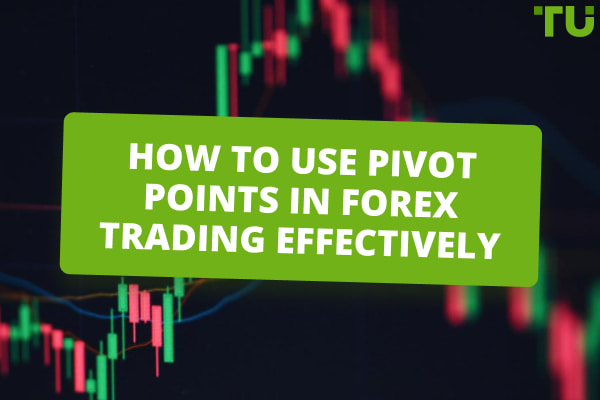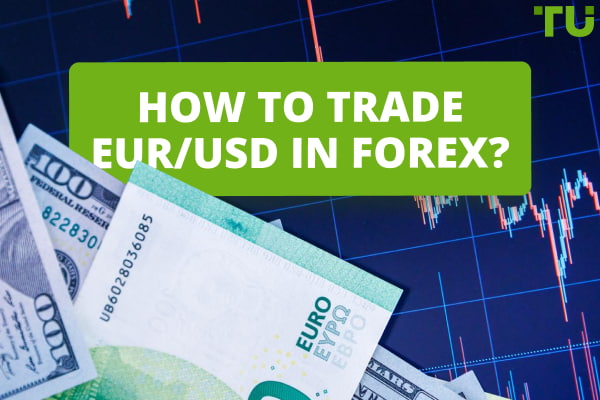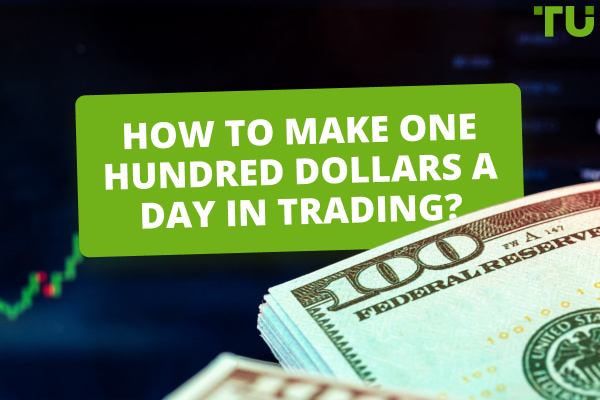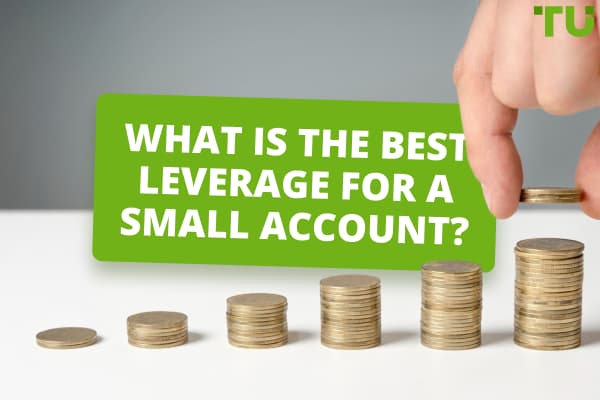What is Forex Trading? Your Guide to Start Earning
What Is Foreign Exchange Market?

Forex is a global currency market. Forex stands for Foreign Exchange. To put it simply, Forex is a system of foreign economic relations between banks of all countries and smaller players participating through banks. The forex market is constantly buying and selling currencies - exchanging one currency for another in hopes of investing in the currencies that have the highest relative value to other currencies. Forex trading is an important part of the global economy.
Learn about Forex trading in UK
Forex Features
The forex market has unique features, which makes it a separate component of the global financial system. These are:
-
free conversion of all world currencies online in real-time
-
guarantee of absolute liquidity of every trade, and there is always a demand
-
the ability to continuously trade throughout the day globally
-
unifying foreign exchange transactions
-
the possibility of engaging in margin trading for high profits
-
high volatility of exchange rates, which do not always rely on economic factors
You might find these parameters a little overwhelming, but don't worry if they aren't completely clear. You’ll understand things better as you learn more about the forex market.
Forex Market Geography
The forex market is global, not limited regionally. Traders are always selling and buying currencies. Thanks to the internet and modern information technologies, any online user can participate in the forex market.
The forex market has some main geographical areas of activity:
-
New Zealand Foreign Exchange Market (Wellington);
-
Australian Foreign Exchange Market (Sydney);
-
Asian Foreign Exchange Market (Tokyo, Singapore and Hong Kong);
-
European Foreign Exchange Market (London, Frankfurt, Zurich, Paris);
-
American Foreign Exchange Market (New York, Toronto, Chicago, Los Angeles).
These are the largest foreign exchange markets. Wellington is the first to start trading, then Sydney, then through Asia and Europe, and, lastly, in the USA. A break in trading occurs only once a week - when American exchanges close on Saturday at 01:00 GMT, and New Zealand exchanges open again on Sunday at 9 p.m. in line with international time zones.
Learn about best Forex micro currency accounts in 2024Forex Market Participants
Forex trading has three main types of participants:
-
Trader.
An individual who trades in the forex market. Any person can become a trader, including you. The only limitation is that a trader cannot trade foreign currencies in the market directly - they must use the intermediary services of a forex broker.
-
Broker.
The organization that gives the trader the opportunity to trade forex. A forex broker is an intermediary between a trader and the Interbank Market. The broker provides the trader with trading instruments, a trading terminal/platform, and other tools necessary for trading.
-
Liquidity provider (or quote provider).
Organizations whose activities determine the current exchange rates of currency pairs. These are the entities that make up the Interbank Market, a network of major banks and other financial services firms.
For example
John Smith wants to make money trading forex. Regardless of where he lives, he chooses a broker. You
will find the best brokers on our list of the best forex
brokers.
John gets registered on the site of the selected broker, goes through verification there, makes a
deposit, and starts placing orders to buy or sell currency pairs. Now he is a trader connected to
the Interbank Market through his selected broker. John does not need to worry about who acts as the
liquidity provider. This is the broker's problem - where to get current quotes and through which
bank they can route client orders to the Interbank Market.
Forex Market Benefits
Now that the basics of the forex market have been outlined, let’s examine some of its benefits and why it attracts hundreds of thousands of traders all around the world.
-
You can trade around the clock.
This gives you a chance to earn trading profits in your free time. Lots of traders can work regular business hours in their main jobs, and trade in the forex market after work. While it is night in one part of the world and markets are “sleeping”, it is daytime in the other hemisphere and markets are active. This means that a trader can trade at any moment, even in the middle of the night.
-
This is the most liquid market in the world.
Every day, millions of transactions occur in the forex market. There is always demand and there are always offers. Market turnover is measured in trillions of dollars daily.
-
Huge leverage.
Forex trading allows you to trade on a margin system, a trader can access high amounts of leverage - often up to 1000:1. Using leverage enables forex traders to trade the market even with small amounts of capital, and also amplifies the size of profits earned (however, it also amplifies the size of trading losses)
-
The most developed investment system.
Forex offers a huge selection of systems for passive earnings: PAMM, LAMM, MAM, RAMM accounts, trust management, auto trading (Copy Trading), etc. You can read more about various investment types in this article.
-
Minimum entry threshold.
Minimum deposit requirements to start forex trading can be as low as $1-10
-
Many risk diversification options.
The distribution of capital, the use of portfolios instead of single investments, trust management - these are just part of the measures a trader can use to reduce their trading risk.
-
High level of potential earnings.
The profits that investors can make in the stock markets in a year can be made by some forex traders in a day.
What is Forex trading?

Forex trading is a process of exchanging currencies in the forex market. To understand how it works, let's take the euro/dollar currency pair. Each currency pair in the Forex market has two prices. The first one is a BID. This is the price at which the broker is ready to buy currency from the trader. The second one is an ASK. This is the price at which he is ready to sell the currency.
The difference between the bid and ask prices is called the spread. It can be fixed or variable, depending on the terms offered by individual forex brokers. Part of the bid/ask spread is taken by the broker as its fee, just like the exchange office takes the difference between the sale and purchase prices.
Forex Trading for Dummies Review - Top tips for BeginnersSuccess in the forex market depends on implementing a good trading strategy There are a potentially infinite number of trading strategies, but all traders are usually divided into two groups:
-
Bulls
are traders who predict an increase in the price of a currency and actively buy it, in order to, hopefully, sell it at a higher price in the future. -
Bears
are traders who specialize in price fall forecasts and, accordingly, they sell one currency against another on the assumption that it will fall in relative value, enabling them to buy it back later at a lower price.
What is traded on the Forex Market?
As a beginner you will need to decide what assets - what specific currency pairs - that you want to trade. There are no restrictions, and experienced traders may trade several currency pairs simultaneously. But it’s better to start with just one pair until you’re more familiar with the mechanisms and principles of the market.
Currency pairs
There are major major currency pairs (ones that have the US dollar as a component), and there are cross-pairs (they do not have the US dollar). A trader chooses a pair, say, US dollar / Canadian dollar, and makes a bet, predicting the likely future value of the Canadian dollar relative to the US dollar. If the forecast proves to be accurate, then the trader realizes a profit on their trade. If their prediction proves wrong, then the trader loses his bet.
Major currency pairs (majors):
-
Euro / US dollar
-
British pound / US dollar
-
Australian dollar / US dollar
-
New Zealand dollar / US dollar
-
US dollar / Japanese yen
-
US dollar / Swiss franc
-
US Dollar / Canadian Dollar
The list of cross-pairs is much longer. There are also the so-called exotic pairs, currency pairs that are much less widely traded. An example of an exotic pair is the Hungarian dollar/US dollar pair.
Indices and stocks
Some brokers also offer exposure to trade stocks and The stock indexes. A stock index is an indicator of the stock market’s overall performance.
Most Popular Stock Indices:
-
●
Dow Jones Ind. Avg
-
●
S&P 500
-
●
NASDAQ Composite Index
-
●
Euro Stoxx 50
-
●
Nikkei 225
-
●
MICEX index
-
●
RTSI
The index can be “weighted” by market capitalization, by price, or by equal weight. Stock indices have a lot of nuances, but they are all intended to reflect overall stock performance.
Cryptocurrencies
Cryptocurrency trading is also now offered by some forex brokers. Cryptocurrencies are digital currencies that use a decentralized payment system to carry out financial transactions.
With the growing popularity of cryptocurrencies, they could not avoid being integrated into the offerings of many forex brokers. Today some traders professionally trade cryptocurrency pairs. This segment is not recommended for beginners, because, unlike classical currencies, accurate forecasting of future price movements is more difficult.
Cryptocurrencies can be bought or sold individually, or traded as pairs. Here are some examples of cryptocurrency pairs:
-
BCH / BTC (Bitcoin Cash to Bitcoin)
-
BTC / JPY (Bitcoin to the Japanese Yen)
-
BTG / BTH (Bitcoin Gold to Bitcoin Cash)
-
BTG / ETH (Bitcoin Gold to Ethereum)
Forex Trading Platforms
A trading platform is software that a broker provides to a trader for trading on the Forex market. Traders use the platform for analyzing the market and then placing orders.
-
desktop
(for PC); -
mobile
(for smartphones / tablets); -
web versions
(work through an internet browser, via the broker’s website)
There are several dozens of trading platforms, and there are brokers that provide their own proprietary platforms. But the vast majority use any of several standard trading platforms. Now we will take a look at some of the main advantages and disadvantages of different trading platforms.
| Platform | Advantages | Disadvantages |
|---|---|---|
| MetaTrader 4 | You can create charts, connect multiple accounts from different brokers; it has functionality for automatic transactions for advisers and experts; more than 50 indicators | Lack of fixation of swap withdrawal / accrual; |
| MetaTrader 5 | Access to multiple financial markets (not only Forex, but also stock, commodities, etc.); 4 modes of order execution; 6 types of pending orders; timeframes and reports; one-click trading function | You can not use "locks"; as in MT4, there is a modifier when opening a new order on a trading instrument |
| NinjaTrader | Support for Rithmic and CTS accounts (supported by TopStepTrader); the simplest functionality and all basic indicators, a large selection of plugins and an integrated strategy analyzer | No options trading; only long-term stock trading; no visualization of objects; glitches happen |
| TradingView | Web platform with a simple and convenient interface; several dozen indicators and graphical tools; supports all cryptocurrency exchanges | A high level of monetization - there is no free option, and for additional functions you need to pay extra |
| cTrader | There is a software and web trading option; built-in functionality for technical analysis; there are more indicators than in MT4; the ability to auto-trade and trade in one click | Consumes a lot of system resources; somewhat limited functionality in comparison with MT4 and MT5 |
Overall
There several platforms that work well, but MT4 and MT5 are the industry-standard platforms. In addition
to the classic desktop version, the MetaTrader platforms are also available in web trading and mobile
versions for iOS and Android phones.

How to earn on Forex without trading?
As we noted above, the Forex market offers opportunities for passive earnings. Let's look at these:
Investing in Forex
Investing in Forex is a process where you invest your funds in any investment program of a broker without making any transactions on your own. Today, Forex brokers mainly offer these types of programs:
-
PAMM / LAMM accounts.
Such accounts are formed with the pooled investments of several investors and the manager. The manager trades, and in addition to his funds, he uses the funds of investors in transactions. Investors do not make any decisions; they only determine the amount they are ready to invest with the manager. This investment option is especially popular with beginners because a professional makes all decisions for you.
-
Trust management.
In this case, the investor directly transfers funds from his account to the account of a third party. This approach does not imply any automatic protection against fraud, as is the case with PAMM accounts. However, the investor can work with the trader under the contract or transfer funds under the management of the broker's traders.
-
Auto trading (Copy Trading).
This investment option allows traders to view and copy the trades of another trader, commonly referred to as the signal provider, to automatically duplicate the signal provider’s trades in their own account. Trades can be copied in whole or in part. If the trade wins, the investor pays a commission to the signal provider. The main difference between copy trading and PAMM accounts or trust management is that the investor does not transfer his funds to anyone else, but is placing trades himself in his own account, although automatically.
MAM and RAMM are varieties of PAMM accounts that provide investors with more control over their investments. But not everyone needs this control. A lot of people prefer trusting professional forex market players to make trades for them. For those who decide to try, we prepared a separate TOP of the best PAMM Forex brokers.
Affiliate Programs
Forex brokers often allow traders to make money as part of their affiliate programs. All you need to do is to tell others about the broker in one way or another. Forex affiliate programs, unlike investing, are as individualized as possible. That is, each broker has its terms of affiliate programs, its restrictions on entry, and different potential. But in general, all affiliate programs are usually divided into several types:
-
CPM
for example, you give a link to a broker on your YouTube channel and get a fixed amount for it -
Pay per action
It’s not enough just to show the link, someone has to click on it - only then you will receive a reward agreed in advance -
Payment for registration or first deposit
with such an affiliate program, you will receive payment only when the user who clicks on your link registers with a broker or makes his first deposit.
These are the main types of affiliate programs but, again, each forex broker has its own affiliate programs. At first, they often do not bring in a lot of income, but as time progresses and more people use the affiliate links that a trader provides, then affiliate revenues can provide a significant extra income stream without any further effort on the trader’s part.
Forex Bonuses
Many newcomers to the foreign exchange market completely forget about bonuses when choosing a broker, as they focus on other factors. Bonuses increase the trader’s deposit. These bonuses are divided into two types - deposit and no deposit ones.
-
Deposit Bonuses
According to the name, these are the bonuses that you receive for making a deposit. For example, a broker may offer you a $100 bonus for making your first deposit, even a minimum one - or a bonus of $1000 when replenishing an account with $500. The terms can be different. You can use these funds in trading but, as a rule, brokers place complicated restrictions on withdrawing bonuses - if they allow bonuses to be withdrawn at all.
-
No deposit Bonuses
This type of Forex bonus is less common. Here, as the name implies, the trader receives additional funds to their account only for registering with this broker. That is, you don’t even need to make a deposit. You immediately receive a certain amount (usually $5-50), and you can immediately use it in trading. This is very convenient because it allows you to test the trading platform, trading tools, and other features provided by the broker live on real accounts without risking any of your own money.
How is the Forex Market Regulated?
The forex market is regulated by law in many countries of the world. This is necessary to reduce the likelihood of fraud by a forex broker and protect the capital of traders.
To enter the Interbank Market, a broker only needs to register as an organization offering financial services.
Licensing of forex brokers is not obligatory in all jurisdictions. But brokers who plan to work honestly seek to obtain a license, because it provides traders with a guarantee of reliability and financial protection. To obtain a license, a broker typically needs to fulfill several conditions, including undergoing proper checks, organizing a compensation fund, and maintaining transparent reporting, etc. Broker licenses are divided into several levels.
-
First level.
United States Derivatives Exchange Commission (CFTC) and National Futures Association (NFA). These are the most demanding organizations. They strictly regulate the operations of brokers. Brokers licensed by these authorities are considered among the most trustworthy and reliable. -
Second level.
The UK Financial Conduct Authority (FCA) and the Australian Securities and Investments Commission (ASIC). Here, the requirements for issuing a license are a little easier, but in general still difficult to obtain. -
Third level.
Cyprus Securities and Exchange Commission (CySEC) and Malta Financial Services Authority (MFSA). Reporting is more simple and overall control is weaker woith these organizations. However, their licenses are still issued only to reliable brokers. -
Fourth level.
British Virgin Islands Financial Services Commission (FSC BVI) and Belize's International Financial Services Commission (IFSC). These organizations do not require a broker to comply with many standards, but they conduct a regular audit. -
Fifth and sixth levels.
Seychelles Financial Services Authority (SFSA) and Saint Vincent and the Grenadines Islands Financial Regulatory Authority (SVG FSA). They feature a simplified license issuance system and a reduced level of control.
These regulators are given as examples. There are many more. The best option is to choose a broker whose activities are regulated by level 1-4 organizations; they are considered the most reliable.
But there is one more detail. Territorially the regulator has legal force only within the borders of his country. This means that if, for example, a resident of European Union trades in the EU, then only EU regulators can protect him.
Forex Trading Risks
Forex trading is carried out using margin trading. This means that a broker can provide a trader with high leverage. Using leverage enables a trader to control financial assets whose full value is much higher than the margin deposit required to trade the assets.

Leveraged trading amplifies both profits and losses. You need to clearly understand that forex trading involves significant risk.
11-25% of beginner traders eventually become professionals. However, in reality, the majority loses at the start because they have not approached trading seriously enough. The forex market offers a huge amount of opportunities for risk diversification. For example, you can invest in different currency pairs, opening several trades at once. In terms of investment, you can use a PAMM portfolio, distributing funds between several portfolio managers. If one portfolio suffers losses, another may realize profits.. Thus, a trader’s overall risk exposure is reduced.
The main conclusion is
that there is always a risk in the forex market, and it is impossible to
completely eliminate it. Without this risk, there would be no possibility of high earnings in the
foreign exchange market. However, risk can be successfully reduced if you use available opportunities
for diversification.

The Forex Market and the Stock Market – What is the Difference?
The stock market is different than the forex market in that it trades different types of financial securities - namely, shares of publicly traded companies. Also, stocks are traded on exchanges, whereas the forex market is a decentralized, over-the-counter market.Also, unlike the round-the-clock trading that takes place in the forex market, stock exchanges have fixed market trading times. Stock trading also offers much less leverage than forex trading does. This means that it is very difficult for a beginning trader with limited investment capital to make substantial profits in a short period of time by trading stocks..
Pros and Cons of Forex Trading – from an Industry Expert
«The modern forex market is, without exaggeration, a storehouse of opportunities; it offers many convenient tools for both the beginner and the professionals. For example, beginner traders can open a trading account with a small deposit and begin trading. PAMM accounts and auto trading services are also available to generate passive income. In the future, you can continue to invest using PAMM portfolios to diversify and reduce risk. Or you can start independent trading. It is simple and convenient with modern terminals».
Ben Freeman, Traders Union Trader Analyst, Contributor
Factors to Consider When Choosing a Forex Broker
We recommend you pay attention to the following points when choosing your Forex broker:
-
Amount of commission, spread, or other trading fees.
It is worth paying special attention to the size of bid and ask spreads, as this often the primary source of a broker's earnings
-
Reliability is always the most important.
When choosing a broker, a trader should find out about whether the broker is regulated, and check its reputation among other market participants, by checking customer reviews
-
Amount of the initial deposit.
Different forex brokers have different conditions for opening an account. A beginning trader may wish to find a broker with a low minimum deposit requirement
-
Order execution speed.
This is an important criterion. Trading profits can be significantly affected by the speed at which orders get filled when price is rapidly changing
-
Capitalization of a Forex broker.
It determines how financially stable the brokerage company is, and whether it can pay profit to its customers in the event of force majeure circumstances.
What is a Reliable Broker?
When choosing a Forex broker, it is important not to become a victim of a scammer, the so-called "bucket shop" or the company "without an address".
To help you figure out the difference between an unscrupulous brokerage company and a reliable one, we have identified several signs of an unscrupulous broker and a reliable brokerage company:
| Reliable brokerage company | Scammers |
|---|---|
| The information about the company indicates all the pros and cons; the broker works with both beginners and experienced traders | Prefer to work with beginner traders, a lot of promotional materials for beginners |
| Commissions and spreads are clearly indicated | Hidden commissions and payments |
| No slippage or malfunction | Problems with active scalping, servers freeze, frequent slippage |
| The Customer service is responsive, the consultants are well-qualified | Customer support is silent, no quick fix is possible |
| Withdrawal of funds is carried out promptly | Customer feedback on problems with the withdrawal of earned funds |
| A company with a long history, large capitalization, a license and a huge number of positive reviews | The company was created recently, the origin and size of the authorized capital is unknown, the license is not published, customer reviews are negative, or the reviews are positive, but they are written as if “carbon copy” |
Top 10 Best Forex Brokers for Beginner Traders
Below, to save you time and help with choosing a broker, we selected the top 10 forex brokers. The list is based on the analysis of their key factors, which are especially crucial for beginning traders. The table shows some of the most popular brokers. You can safely open an account with any of them, with no fear that the company is unscrupulous.
| Broker | Minimum deposit | Accounts for beginners | Earnings from Traders Union |
|---|---|---|---|
| Admiral Markets | $1 | Demo-account, Zero | 25% of the broker's net profit |
| XM Broker | $5 | Micro-account, Demo-account | $8 per lot |
| FXCM | $50 | Demo-account, Mini-account (EU and UK FXCM clients are excluded from the rebate program) |
1 pip per 1 lot |
| FXTM | $10 | Demo-account, Cent account | from $5 per lot |
| FxPro | $100 | Demo-account | $4.8 rebate per 1 standard lot |
| AVATrade | $100 | Demo-account | $10 per 1 lot |
| InstaForex | 1$ | Cent-account, Demo-account | 2 pips per 1 lot |
| Tickmill | $100 | Demo-account | from $2 per lot |
| Roboforex | $10 | Demo-account, cent account | 40% of broker’s profit |
| IC Markets | $200 | Demo-account | $2 per 1 lot |
Also, it should be emphasized separately that our website allows you to earn more with any broker from our rating. All you need is just to open an account with a broker by clicking on the link on our website. Everything will be exactly the same as if you opened an account directly, except that we will pay you every month for completed trades, even unprofitable ones.
FAQs
What is the Forex market?
The foreign exchange market is the market for international currency exchange trading.
How to start Forex trading?
To start trading forex, an individual needs to open an account with a forex broker. The broker provides the trader with a trading terminal, trading tools, and all the opportunities for trading forex.
Are there any Forex passive income options?
Yes. A trader can invest funds with minimal risk in PAMM / LAMM accounts, which are managed by professional market players. There are other available options, such as trust management and Copy Trading services.
How secure is Forex trading?
Since trading is conducted on margin, using high amounts of leverage, the risks of forex trading are significant. However, brokers provide several effective opportunities for risk diversification, such as PAMM portfolios.












